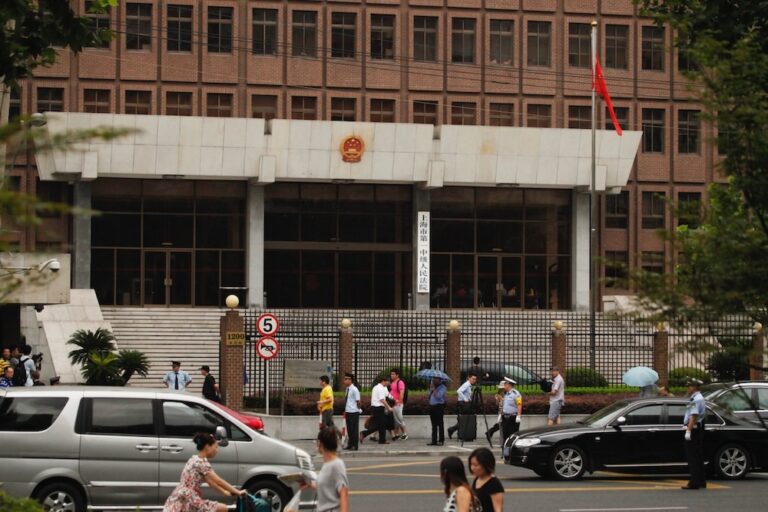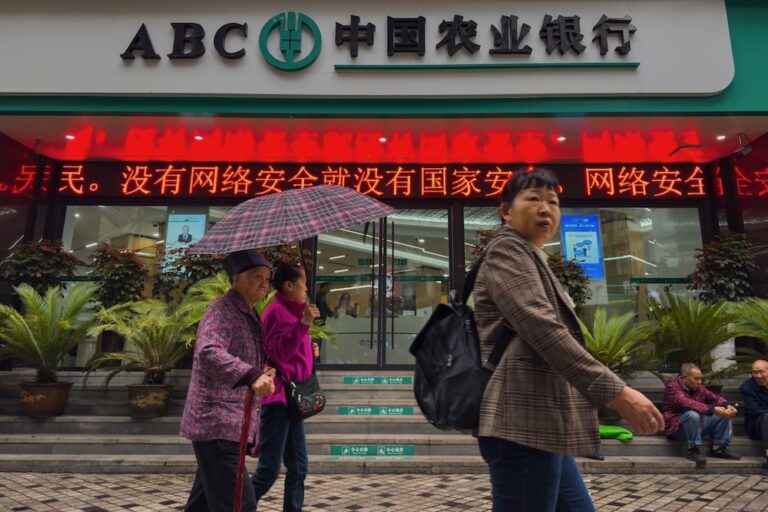(HKJA/IFEX) – The following is a 22 August 1999 HKJA statement: The Law Reform Commission in Hong Kong has just released a consultation paper on the regulation of media intrusion. The most alarming proposal will, if adopted by the government, see the creation of a statutory press council to deal with complaints about breaches of […]
(HKJA/IFEX) – The following is a 22 August 1999 HKJA statement:
The Law Reform Commission in Hong Kong has just released a consultation
paper on the regulation of media intrusion. The most alarming proposal will,
if adopted by the government, see the creation of a statutory press council
to deal with complaints about breaches of a press code on privacy-related
matters. Council members will be appointed through a highly convoluted
system. Hong Kong’s chief executive, Tung Chee-hwa, will appoint an
individual, who in turn will name a three-person appointments committee,
which will be responsible for appointing the 12 to 20 members of the press
council for the protection of privacy, as it will be called.
The press council will be a body with teeth. It will have the power to
impose fines of up to HK$1 million (about US$125,000) on newspapers or
magazines found to be in breach of the code. Media organisations and
professional bodies in Hong Kong have come out against the proposal.
We agree that something must be done about professional ethics, but we
believe the Law Reform Commission is misguided in its proposal. The press
council, which would be set up indirectly by a far from accountable Hong
Kong government, could have a dangerous effect on press freedom.
You may read the consultation paper on www.info.gov.hk. Attached please find
our statement on this issue:
GOVERNMENT MUST REJECT PRESS COUNCIL
The Hong Kong Journalists Association calls on the government to reject the
proposal released on Friday by the Law Reform Commission to create a press
council with the power to fine media organisations up to one million
dollars. The HKJA’s chair, Mak Yin-ting, says “the Press Council for the
Protection of Privacy could very likely become a tool for the government to
control the press.”
The HKJA remains deeply concerned about ethical problems within the
industry, but feels the Law Reform Commission has adopted an easy way out of
the problem, and ignored the reality that media freedoms in Hong Kong are
extremely fragile.
Our objections include the following key points:
* LACK OF DEMOCRATIC SCRUTINY: In its report, the Law Reform Commission
admits that the Legislative Council could alter the laws governing a press
council to “infringe fundamental human rights” (paragraph 7.24), but that
this would not happen because the Basic Law states that Legco will
eventually be fully elected by universal suffrage. The HKJA believes that
until universal, equal suffrage is in place, the government should not
consider any form of statutory press council. The report also draws on the
experience of several overseas press councils. We note that they all operate
in democratic countries or territories.
* CHIEF EXECUTIVE TO HAVE NEW POWERS: Despite their best efforts, the Law
Reform Commission has been unable to come up with a system of insulating the
Press Council for the Protection of Privacy from government control. Its
members are directly or indirectly appointed by the Chief Executive, and the
person who starts the whole process of appointment will be chosen directly
by the Chief Executive (recommendation 9). This in itself would raise doubts
about the independence of the process.
* NOT EFFECTIVE: The HKJA agrees that there are ethical problems in the Hong
Kong media. These are complex issues with no easy answers. But it is wrong
to single out privacy for attention. The Law Reform Commission study is
therefore highly incomplete. Indeed it admits that the case of Chan
King-hon, one of the most serious ethical problems in recent years, was not
a privacy issue at all (paragraph 4.18).
* EXCESSIVE BUREAUCRACY: The creation of a new body would undoubtedly lead
to public confusion. Hong Kong already has a Privacy Commissioner, with a
large staff and budget. Why do we need yet another government body? The Law
Reform Commission does not make a good case.
* HIGHER COSTS FOR READERS: The costs of the new press council will in
effect be paid for by a “newspaper tax”, paid by publishers but, the
Commission admits, passed on to readers (paragraph 8.86). The new body would
have no incentive to keep its costs down and readers would have to pay extra
for their newspapers. The levy, to be fixed through compulsory audits of
circulation, would be a departure from the government’s claimed policy of
not interfering in private business. The HKJA will study the two
consultation documents in detail, before making a formal submission on the
vital issue of media regulation.
For any further information, please contact Ms Mak Yin-ting on 799 10 197.
HKJA Executive Committee
August 22, 1999


